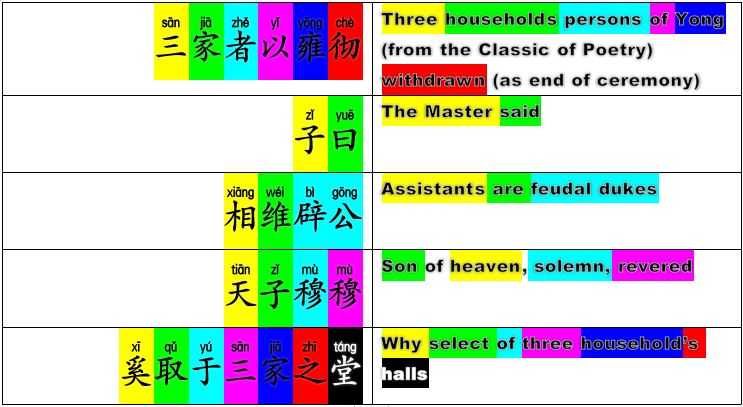Analects 3.8
Original Text:
子夏问曰巧笑倩兮美目盼兮素以为绚兮’何谓也子曰绘事后素曰礼后乎子曰起予者商也始可与言诗已矣
Translation:


Other Translations:
Zixia asked, “[An ode says,]
‘Her artful smile, with its alluring dimples,
Her beautiful eyes, so clear,
The unadorned upon which to paint.’
What does this mean?”
The Master said, “The application of colors comes only after a suitable unadorned background is present.”
Zixia said, “So it is the rites that come after?”
The Master said, “It is you, Zixia, who has awakened me to the meaning of these lines! It is only with someone like you that I can begin to discuss the Odes.”
Confucius, & Slingerland, E. (2003). Analects: With selections from traditional commentaries. Hackett Publishing.
Zixia asked, saying,
Her artful smile engaging,
lovely eyes in clear outline,
colors on a white ground,
What do these lines mean?
The Master said, The painting comes after the white background.
Zixia said, So ritual comes afterward?
The Master said, Shang (Zixia) si the one who reads my meaning. At last I have someone to discuss the Odes with.
Confucius, & Watson, B. (2007). The Analects of Confucius. Columbia University Press.








